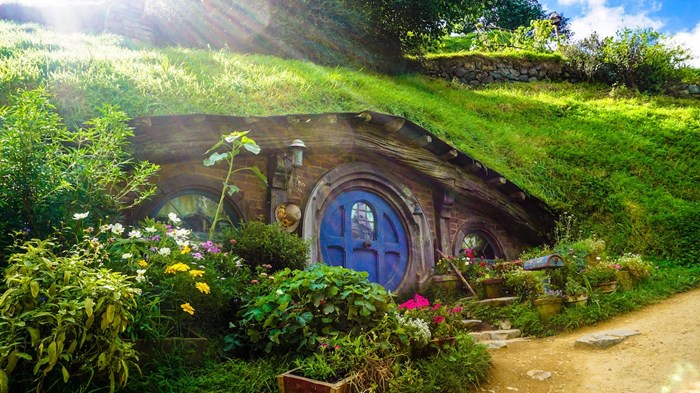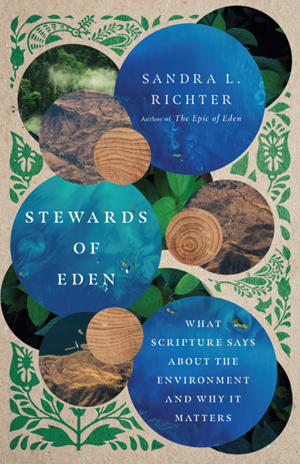Our Mission: Stewards of Eden

The Bible begins in Genesis 1. No big insight there. But if the Bible begins there in the sense that it defines our mission in this world, then it is a big insight: our mission is environmental to the core. In Sandra Richter’s wonderful, readable new book, Stewards of Eden, we read about this mission: creation is God’s blueprint.
If your church is not on board for our environmental mission, buy some copies of this book, pass them around, and get a group discussion going.
If you are not board, buy this book and read it and get on board.
It’s our mission. The Bible says so.
To make an argument that environmental concern is a kingdom value, the issue must rise to the level of the former – a consistent component of Gods instructions to humanity, a regular attribute of God’s communicated values and affections. And as all biblical theology starts in Eden, we must start our inquiry there as well.

So Richter explores the mission of humans as detailed in the creation account. Humans – man and woman – are called to govern God’s creation as God’s representatives on earth. That’s each of us, not the governmental authorities. Each of us, in our homes and in our work:
The profound implications of humanity [adam] being fashioned and animated as God’s physical representatives on this planet cannot be overstated. Both the biblical text and its ancient Near Eastern counterparts make it clear that for humanity to be named a selem (image) is for humanity to be identified as the animate representation of God on this planet. In essence, woman and man are the embodiment of God’s sovereignty in the created order. Here male and female are appointed as God’s custodians, his stewards over a staggeringly complex and magnificent universe, because they are his royal representatives.
In sum, humanity plays a critical role in God’s blueprint for the flourishingof this majestic ecosphere in which we find ourselves. Yahweh is indeed the ultimate sovereign, but humanity has been created as his representative to serve as custoclian and steward, enacting the Creator’s will by living our lives as a reflection of God’s image. We have received our authority from the Creator. We rule as he would rule. We are stewards, not kings.
It sound nice, even cute at times. A little Romantic perhaps. But no,
… as those made in the image of God, humanity is literally “installed” in the garden for this very task.
Notice this now:
Here there would always be enough. Progress would not necessitate pollution. Expansion would not require extinction. The privilege of the strong would not demand the deprivation of the weak.
But we all know the story: humanity rejected this perfect plan and chose autonomy instead. And because of the authority othumanity’s God-given position within creation, all creation paid the price for human-ity’s choice.
The curses then are not bruisings and woundings and random punishments. Instead, they reverse the creation order and flip things upside down. The chaos that YHWH tamed returns.
Our calling now is to restore the order.
Jesus Creed is a part of CT's
Blog Forum. Support the work of CT.
Subscribe and get one year free.
The views of the blogger do not necessarily reflect those of Christianity Today.


















